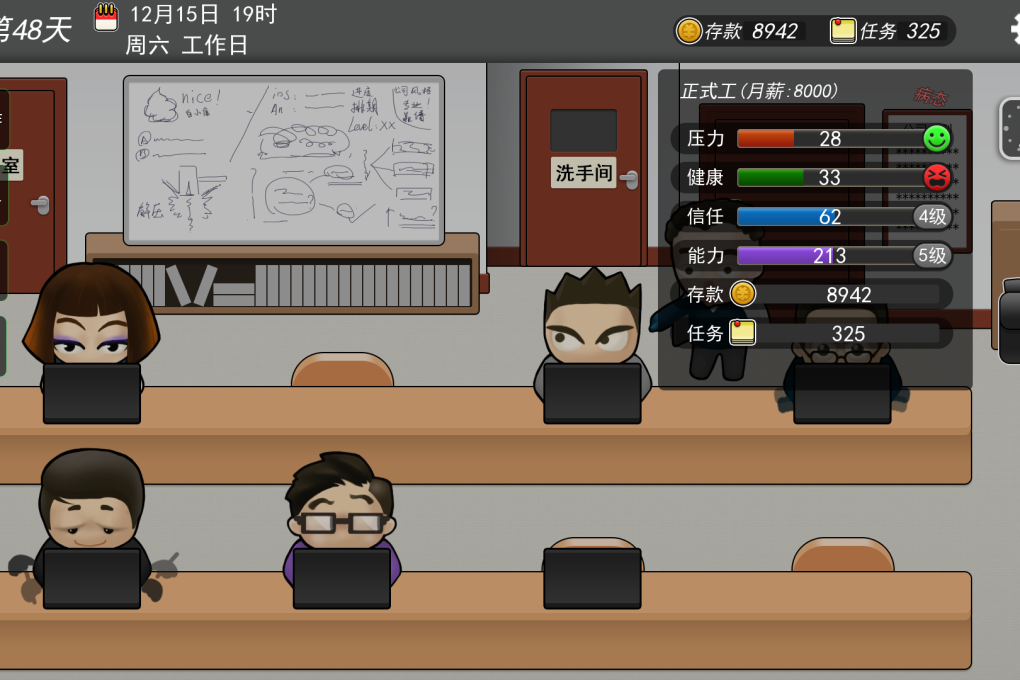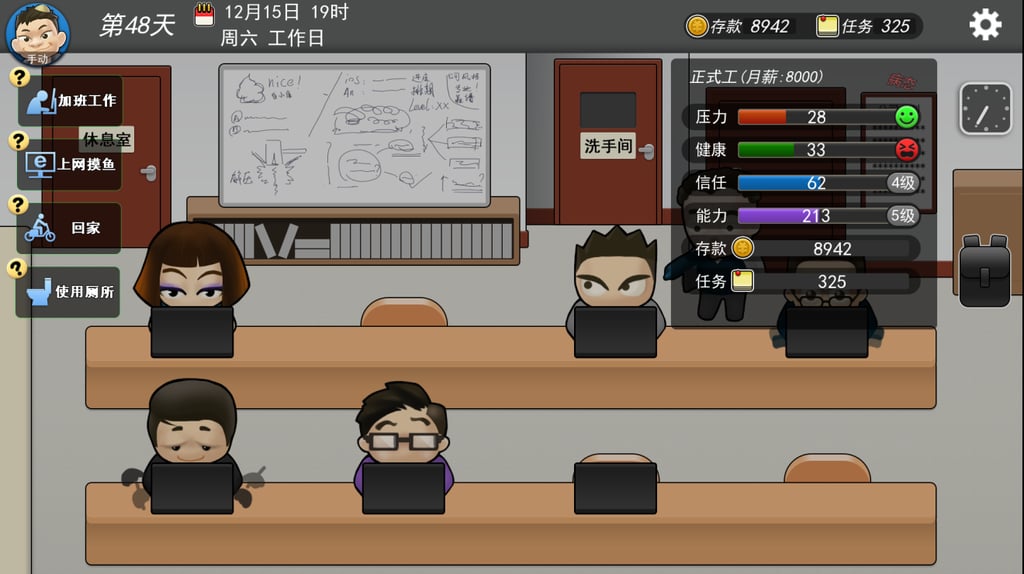Experience the damaging reality of China’s 996 work culture in a new game
My Office 996 parodies work practices once championed by Alibaba founder Jack Ma, JD.com’s Richard Liu and Huawei

Just six weeks into my shiny new programming job at a Hangzhou tech startup, I was thrown into a moral dilemma: Should I agree to the proposed firing of my senior coworker, who had been hospitalised after weeks of late-night working – or should I speak up to the CEO, who was clearly annoyed by the growing pile of unfinished work?
I chose to go against the boss. And then the game was over.

Barely five months old, and with no backing from major publishers, My Office 996 has become one of the top-rated games on Taptap, a popular Chinese online game community. Scoring an average of 8.4 among nearly 1,000 reviews, the free-to-play indie game seems to have struck a chord with some of the country’s chronically overworked employees.